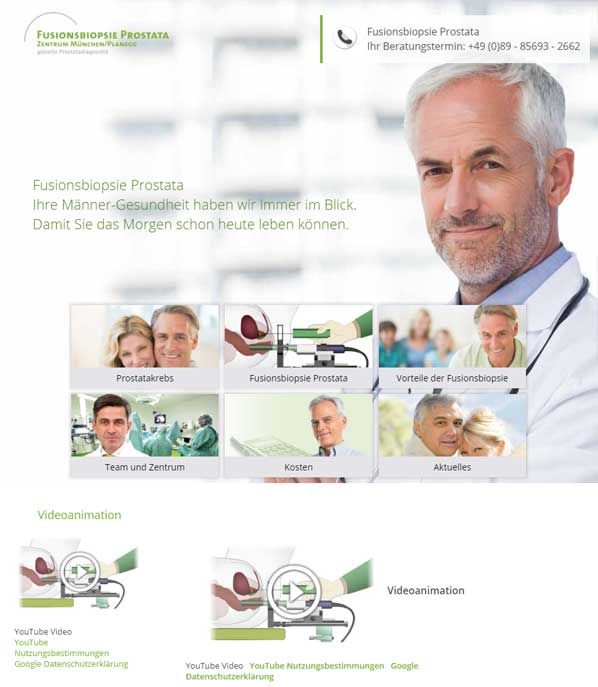Infertility: dysfunction of male reproductive ability
Currently, every sixth married couple in Germany has no children, despite a desire to have them. In about 40% of these cases, the cause is to be found with the man. If no pregnancy ensues after one year, despite regular sexual intercourse taking place in line with the cycle, then it is essential for the man to obtain urological clarification in addition to a gynaecological examination of the woman.
What are the causes?
- Idiopathic infertility (i.e. an unfulfilled desire to have children in which due examination fails to reveal a cause; this is the most common form of male infertility, with a rate of 30 %)
- Inflammation of the testes, above all mumps during childhood or chronic epididymitis
- Congenital disturbances or malformations in the areas of the testes or seminal ducts
- Genetic disturbances
- Dysfunction of the blood vessel system (varicocele/testicular varicose veins)
- Hormonal disturbances
- Dysfunctional ejaculation (of medicinal, post-operative, neurogenic cause following paraplegia and others)
- Exogenic factors (e.g. intoxicants and medications, environmental influences, radiological exposure, infections, stress)
- Systemic illnesses (liver cirrhosis, kidney disease, cystic fibrosis, etc.)
What examinations are required?
Following a physical examination and determination of hormone values, the main examination is a semen test (spermiogram). Due to the large fluctuations that a spermiogram is subject to, this should be performed at least twice. An ultrasonic test of the testicles should be routinely performed and a Doppler ultrasound test can be optionally performed if varicose veins are suspected. These tests are fully painless.
What help is available?
In most cases, causal therapy of the fertility dysfunction is not possible. The medicinal treatment of a fertility disturbance is only of value when the cause is inflammatory. Testicular varicose veins (varicocele) should be treated in the event of conspicuous findings in the spermiogram and in the case of an unfilled child bearing wish.
If no organic cause of infertility is detected, the fastest and safest way of realising a pregnancy is to initiate artificial insemination. The pregnancy rate in this case is around 30-40 % per cycle. This method even enables men without any sperm cells in their semen to father a child by undergoing a minor operation to extract semen cells directly from the testicle tissue. These can be removed either from the epididymis (MESA) or directly from the testes (TESE) using microsurgery. In these cases, it is highly recommended that the procedure is conducted in close cooperation with a reproductive medical centre, where urologists, gynaecologists and geneticists work hand in hand.







